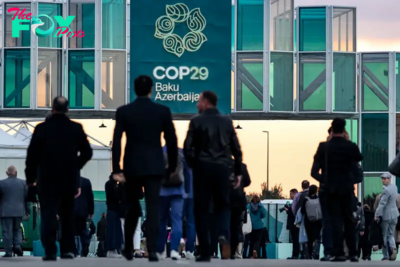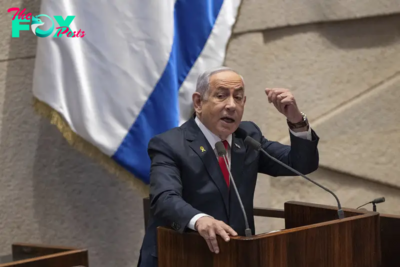World News
‘Netanyahu is the Problem.’ Why Tens of Thousands Are Protesting in Israel
Tens of thousands of protesters in Israel are pushing for the release of hostages in Gaza, spilling into the streets this week with some demanding Prime Minister Benjamin Netanyahu step down and call elections.
Public anger over the failure to achieve a hostage deal reached a boiling point on March 30 in the biggest protests the country has seen since the start of its war with Hamas six months ago.
At rallies across Israel, the largest in Tel Aviv and Jerusalem, crowds chanted and waved signs and flags. Some people lit fires in the street. In response to smaller groups blocking roads, police pushed people, brought in horses, and turned on water cannons, leading to arrests, according to witness accounts, videos, and pictures.
A turning point came Saturday when some family members of former or current hostages tell TIME they began calling for the resignation of Netanyahu in order to free their loved ones, joining forces with anti-government protesters.
Eyal Nouri, whose aunt Adina Moshe was released from captivity in November, tells TIME in a phone call that he views the prime minister as the obstacle to a deal. “We realized that Netanyahu is the problem,” he says. “If you’re managing the government, you’re in charge.”
Netanyahu said in a video statement released Sunday that he was doing everything he could to secure the release of the hostages. “Whoever says that I am not doing everything to return our hostages is mistaken and is misleading others. Whoever knows the truth and still repeats this lie is causing unnecessary pain to the hostages' families,” the prime minister said. “I reiterate: I am committed to returning all of our hostages, women and men, civilians and soldiers, the living and the victims. I will not leave even one behind.”
In response to TIME’s questions about the protests and criticisms of Netanyahu, Ophir Falk, Israeli Prime Minister Foreign Policy Adviser, said in a written statement Wednesday: “The entire government and people of Israel have the hostages and their families in our hearts and constantly on our minds.”
“Destroying Hamas and freeing the hostages are not mutually exclusive goals. On the contrary, these missions complement one another,” he said, adding that Military pressure on Hamas led to the previous release of hostages. “Israel will continue to do what is needed to reach all its just war objectives.”
Hamas took 253 people hostage on Oct. 7, according to the prime minister’s office. As of the end of March, 130 remained alive in Gaza, with 34 believed to be dead. Those still alive include 111 men and 19 women, including two children under the age of five and 11 foreigners.
As Israel faces pressure at home, it’s also under mounting criticism abroad for its retaliatory bombardment and invasion of Gaza that has killed 32,850 Palestinians, according to the Hamas-run Health ministry and foreign aid workers.
Here’s what to know about protests in Israel.
What do protesters in Israel want?
The main demand is for the government to do whatever it takes to secure an immediate hostage deal.
“There will be no victory if hostages are not going back,” Gil Dickmann, whose cousin Carmel Gat, 39, is being held hostage, tells TIME in a phone call. “I don’t care for blood or for revenge, I don’t want to see people dying on either side of the border. What I want to see is hostages coming back and Palestinians coming home to where they were driven away from.”
Dickmann says pressure has been building for a few months, but finally “it all burst because we got tired of waiting.” He and others are applying pressure because they’re worried current Israel-Hamas negotiations “could be the last chance to get most of the hostages alive, because every day that passes their lives are at risk.”
The Times of Israel reported that Israeli negotiators returned this week from mediation without securing a deal.
For the past two months, weekly rallies have been held in Tel Aviv by two groups––one focused on securing a hostage deal and the other calling on the government to resign, Nouri says. But on Saturday, those protests merged as some hostage families decided that Netanyahu must go and made their first organized public statements for him to resign.
“We have been quiet and ordered to be quiet for half a year, but no more,” Efrat Machikawa, whose 80-year-old uncle Gadi Moses is a hostage, tells TIME on the phone. “I am a very worried family member and citizen in a democracy that has a right to say enough, and if you cannot do it, let somebody else do it…He is the one to blame. It’s a failure––it’s his failure.”
Nouri and Machikawa say they believe Netanyahu is putting Politics above the greater good, with Machikawa adding he should step aside as an act of leadership.
Dickmann, however, says he and some other families remain apolitical: “I don’t really care who’s prime minister right now, what I care about is that hostages are back.”
How have the protests escalated recently?
Protests ramped up on Saturday in Tel Aviv, with one group lighting a fire at the entrance of the Ministry of defense and another gathering on the main thoroughfare Begin Road, Nouri says.
Machikawa says police shut off the speaker system just before she was scheduled to speak. She then saw things turn chaotic on the highway below the bridge she was on: “I saw police pushing and being very, very aggressive to anyone around them.” When she got off the bridge, she saw “huge black horses coming in and somebody shouting to not step on the road, you’re not allowed to be here, this is not an approved protest.” She then fled because she was scared, she says.
Dickmann says police were “more violent” than before, something “most of us did not expect” against the families of hostages. Nouri says it was a smaller group, about 50 people, that clashed with police, while he and many others did not have issues.
Similarly massive and contentious protests took place in Jerusalem on Sunday, Monday, and Tuesday, according to reports.
In an emailed statement to TIME, Israel Police says recent events in Tel Aviv and Jerusalem required “our swift and decisive intervention due to breaches of public order and safety concerns.” Police said 17 people were arrested for disorderly conduct in the Tel Aviv district on Saturday, and that since Sunday, 10 people were arrested for various acts of disorderly conduct, including but not limited to lighting fires on roadways, using pyrotechnics, and intentionally vandalizing a police motorcycle.
Israel Police says it is “dedicated to ensuring public safety and upholding order while respecting individuals' rights to express their opinions lawfully.”
“While the Israel Police will continue to permit lawful protests, we will take action against any attempt to disrupt public order, jeopardize routine city life, incite violence, or violate the law. We aim to prevent incitement, hate speech, and unlawful conduct in all forms,” the statement read. “Each situation is assessed individually, considering factors such as public safety and adherence to the law. The police are authorized to intervene as necessary to maintain order, including dispersing unlawful gatherings and making arrests.”
As of Wednesday, protesters were camped outside the Knesset, Israel’s Parliament, and sleeping in Hostages’ Square in Tel Aviv, Nouri says.
The Knesset will go on recess from April 7 to May 19––a break hostages’ family members denounced amid the crisis. Dickmann says the Hostages and Missing Families Forum, a coalition of which he’s a part, is transferring its office from Tel Aviv to Jerusalem for the Knesset break and plans a big rally on April 7, the six-month anniversary of the war.
How has Netanyahu responded?
Netanyahu in his video address Sunday pushed back on criticism that he wasn’t working as hard as he could to free hostages. He said negotiations were “the only way to return our hostages.” But he said Israel could not agree to Hamas’ position to allow for the “unsupervised return of Gazans––including Hamas terrorists––to the northern Strip” for “security ramifications.”
“The truth is that when Israel shows flexibility in the negotiations, Hamas hardens its positions,” the prime minister said.
Netanyahu also criticized the call for elections now, saying doing so during war “will paralyze the negotiations for the release of our hostages and in the end will lead to ending the war before achieving its goals and the first to commend this will be Hamas, and that says it all.”
-

 World News2d ago
World News2d agoLandmark Bill to Ban Children From Social Media Introduced in Australia’s Parliament
-

 World News2d ago
World News2d agoAmerican and Australian Tourists Die in Laos After Drinking Tainted Alcohol
-
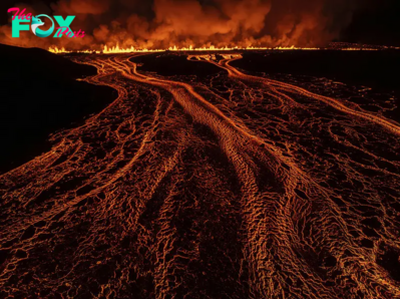
 World News3d ago
World News3d agoSee Photos of the Seventh Volcanic Eruption on Iceland’s Reykjanes Peninsula in 12 Months
-
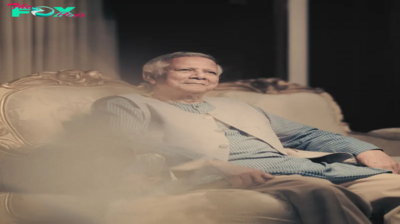
 World News3d ago
World News3d agoMuhammad Yunus on the Race to Build Bangladesh 2.0
-
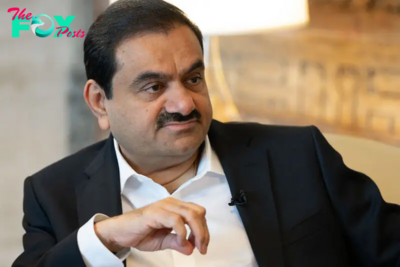
 World News3d ago
World News3d agoU.S. Charges Indian Billionaire Gautam Adani With Defrauding Investors
-
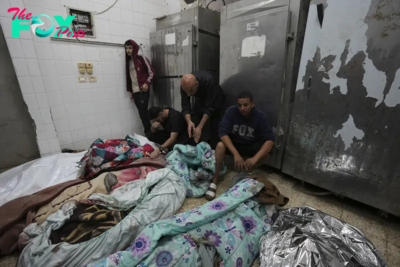
 World News3d ago
World News3d agoU.S. Vetoes U.N. Resolution Demanding a Cease-Fire in Gaza
-
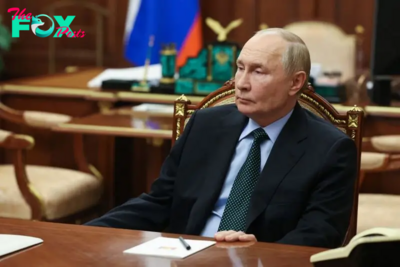
 World News3d ago
World News3d agoPutin Signs New Doctrine Lowering Nuclear Weapons Threshold in Warning to U.S.
-
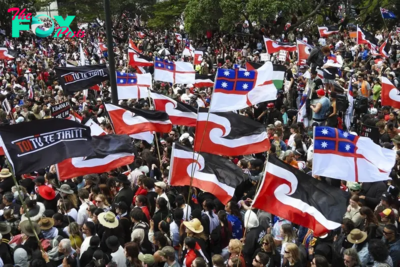
 World News3d ago
World News3d agoTens of Thousands Rally at New Zealand’s Parliament in Support of Māori Rights




